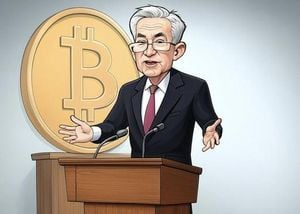Sean Connery, the legendary actor known primarily for his role as James Bond, had other iconic roles within his reach—but he opted out of many of them. More than 40 years after his final turn as 007, conversations about Connery's career often focus on his rejection of certain scripts, particularly roles from some of the best-loved films of the late 20th century.
Despite his monumental fame as the suave Scottish spy, Connery had significant reservations about several major film roles, among them Gandalf from "The Lord of the Rings", Morpheus from "The Matrix", Dumbledore from "Harry Potter", and Dr. Alan Grant from "Jurassic Park". These refusals are interesting footnotes to more than five decades of acting credits.
One of the more infamous roles he declined was Hannibal Lecter in the 1991 classic "The Silence of the Lambs". Director Jonathan Demme once remarked, "Sean Connery was the only other person I thought would be good for this role... I love Anthony Hopkins, but Sean Connery would have been fantastic.” Demme was familiar with Connery's formidable presence and thought the actor could bring brilliance to the infamous cannibalistic psychiatrist.
While the role eventually went to Anthony Hopkins, whose portrayal earned him accolades—including the Academy Award for Best Actor—Connery’s initial reaction to the script was anything but enthusiastic. According to Demme, Connery found it "disgusting and wouldn’t dream of playing the role". It's hard to think of any contemporary actor who could encapsulate Lecter's chilling sophistication as efficiently as Hopkins did, but Connery certainly had the range to deliver something unique.
Connery’s rejections didn’t stop there. His decision to turn down the role of Gandalf is now considered legendary; Ian McKellen eventually brought the character to life, earning acclaim and recognition for his performance. How different might the narrative have been had Connery embraced this leading role? The same can be said for his choice against playing Dumbledore, leaving those iconic parts starkly dissimilar to the roles he initially took on.
Looking back, Connery’s refusals might appear puzzling, especially since several of these projects turned out to be landmark films. The "Harry Potter" series and "Jurassic Park", for example, became cultural phenomena, yet Connery reportedly found himself distanced from the scripts and stories.
Consider "Jurassic Park"—Connery was offered the role of Dr. Alan Grant, which went to Sam Neill. His reluctance may underline Connery's search for material he felt aligned with his character preferences, as he was not just any actor but someone who sought to portray more than one-dimensional characters.
But rejecting roles and scripts also tells us something larger about the man who breathed life and vigor outside the James Bond span—his willingness to avoid what he deemed unworthy of his acting prowess speaks volumes about his standards. He turned down not only these blockbuster hits but also significant projects across his career. It raises the question: was Connery too good for them?
While many actors might regard such roles as career-defining, Connery's choices highlight his distinctiveness and unwillingness to compromise on the quality of stories he was willing to convey. His legacy remains, after all, rooted smaller threatening aspects of crime and struggle; he excelled immensely when depicting complex characters—just like his Academy Award-winning turn as Jim Malone in Brian De Palma’s gangster classic "The Untouchables".
More than ever, as the legend of Sean Connery continues to resonate through cinema, his decision to say no speaks to his broader perspective and artistic demands. While we may forever speculate what these performances could have been, it’s important to rear back, realizing how significantly he influenced the industry with each role he embraced—choosing the characters he felt most aligned with his experiences and vision.
Now what remains are not only the scripts he declined, but the spotlight remains firmly on the films he did grace with his performances. Connery remains intricately tied to the broader narratives within cinema, ensuring his impact will remain indelible. The enduring debate over what could have been uplifts his stature, melding with his willingness to step back when he didn't deem the content fit for his legacy.



